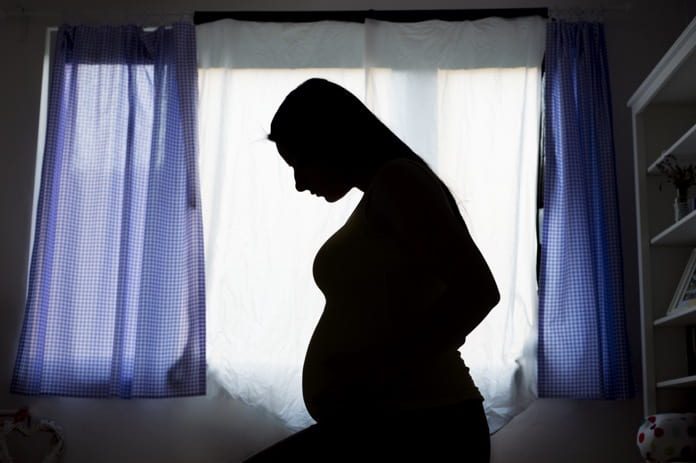A new study published in the journal Birth determined whether maternal sleep is associated with the risk of stillbirth.
Stillbirth is fetal death at or after 28 weeks of pregnancy. The risk factors for stillbirth include advanced age, obesity, smoking, pre-eclampsia, and diabetes in pregnancy. Being a preventable cause, several studies have been carried out in the past to reduce stillbirth.
Sleep disturbances carry risks of adverse outcomes in pregnancy like growth restriction and pre-term growth. The researchers of the Study of Trends and Associated Risks for Stillbirth Consortium, partnered with the Star Legacy Foundation and other parental support groups, recently carried out a study to deduce the effect of maternal sleep habits on stillbirth. This study was recently published in the journal Birth.
For the study, the researchers conducted an online survey. It involved two groups; women who had stillbirth less than one month before the survey and the other group in their late pregnancies or who had recent (less than four weeks) live childbirth. A questionnaire was used to enquire about their nap times, duration of night-time sleep, number of arousals, sleep quality, drugs used for sleep. Their country of origin, race (Caucasian or non-Caucasian) was noted. The study excluded women younger than 18 years, those with more than one fetus, or a fetus with a congenital anomaly, and those who were not fluent in writing or reading English.
Mothers who had history of stillbirth had longer durations of sleep
Night-time sleep was significantly longer in the women who had a stillbirth. Duration of nap times was equal in both groups. The mothers of stillbirth had no awakenings or woke up only once at night. Interestingly, these women had better sleep quality during the last month of pregnancy. There are few research studies demonstrating that supine sleep position had a greater risk of stillbirth. However, this study did not find any such correlation.
Waking up during the night may be beneficial for mother and baby
Sleep disturbances often occur in pregnancy such as sleep-disordered breathing, short sleep duration, and poor sleep quality. These are proven to have effects like gestational hypertension, gestational diabetes, pre-eclampsia, fetal growth restriction, and pre-term birth.
Since blood pressure decreases during sleep, intermittent arousal during sleep causes a hike in nervous activity to increase blood pressure and hence is beneficial. However, long sleep duration with no awakening causes prolonged low blood pressure. To add to it, uninterrupted sleep is associated with continuous vena caval compression, restricting blood flow to the fetus. Several mothers believed that the babies died during the night.
The study ensures international coverage
One strength of this study is the inclusion of women from various parts of the world. However, the vast majority of them were Caucasians. Non-Hispanic women were found to have a higher risk of stillbirths. Further study is required to determine the racial influence on stillbirth.
The limitations of this study include inconsistency in the collection of data as the mothers had to recollect the details. This was limited by involving women who were in late pregnancy during the study or recently had stillbirth. There were no definite measured procedures like polysomnography, in the study which would give a more reliable data.
Maternal sleep plays an important role in fetal well-being
Louise O’Brien, co-author of this study, states, “Our findings add to research indicating that maternal sleep plays a role in fetal wellbeing. Studies aiming to reduce stillbirths should consider maternal sleep as this is a potentially modifiable risk factor. Understanding the role of maternal sleep may help us identify interventions that would put us in a better position to advice women.”
Stillbirth has a huge devastating influence on the mother and the family. Although in many cases, the cause is not known, it can be prevented. Further research on the risk factors for stillbirth needs to be undertaken. The neural and hormonal mechanism of maternal sleep contributing to stillbirth is a potential area requiring further research.
Written by Dr. Radhika Baitari, MS
References:
- O’Brien L, Warland J, Stacey T, Heazell A, Mitchell E. Maternal sleep practices and stillbirth: Findings from an international case-control study. Birth. 2019;
- Long periods of undisturbed sleep during pregnancy may be associated with stillbirth [Internet]. EurekAlert!. 2019 [cited 14 February 2019]. Available from: https://eurekalert.org/pub_releases/2019-01/mm-u-lpo011719.php



